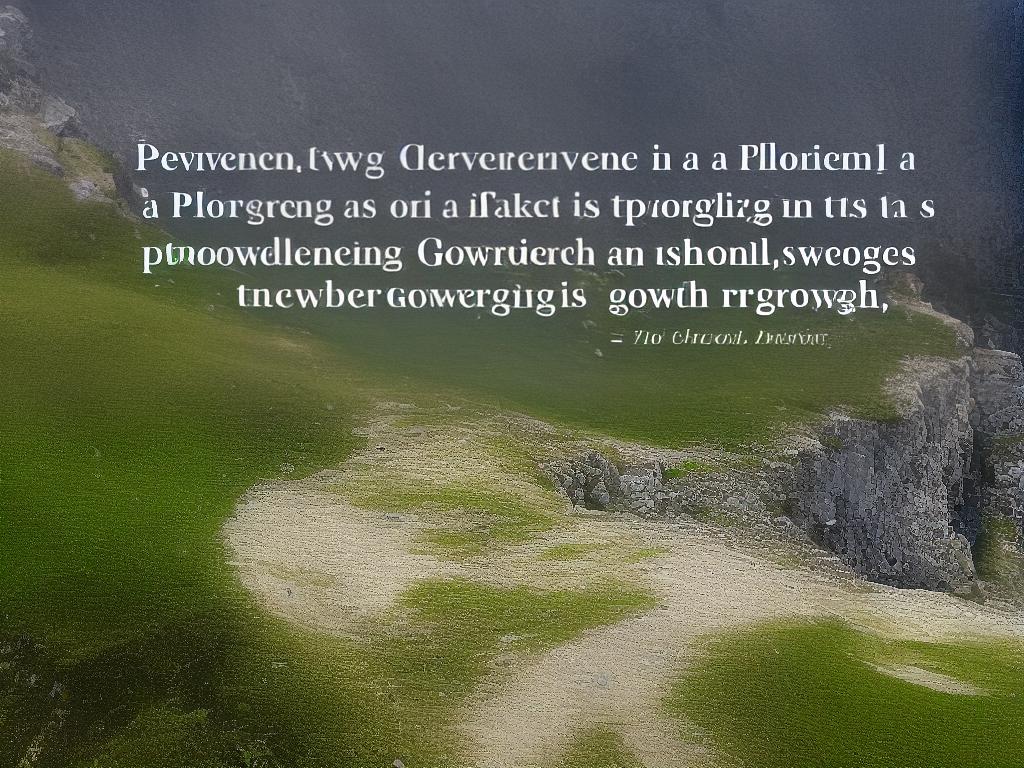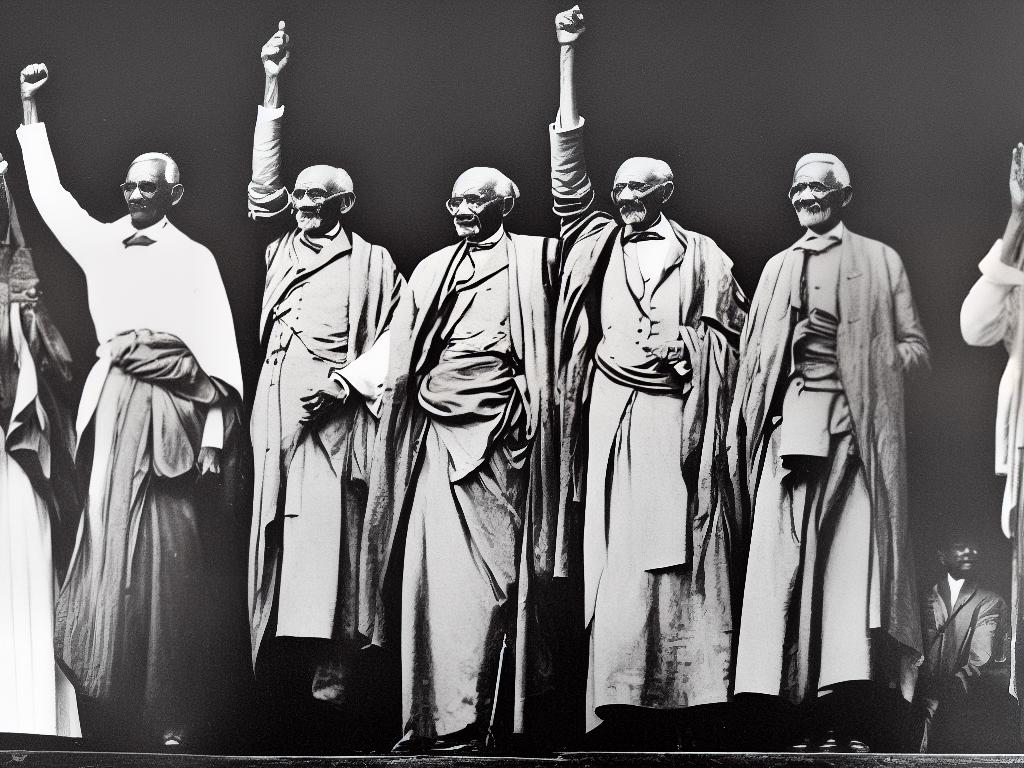In the face of adversity, an individual’s ability to persevere determines whether they can successfully overcome challenges and thrive in difficult circumstances. Perseverance, an embodiment of determination, resilience, and mental fortitude, is a crucial component in navigating through life’s hardships. This exploration delves into the multifaceted nature of perseverance, offering insights from historical examples, real-life stories and psychological factors, as well as providing strategies that foster perseverance in daily life.
Understanding Perseverance
Perseverance is the unwavering determination and tenacity to maintain focus and effort in the face of adversity, setbacks or challenges. This attribute has long fascinated psychologists, philosophers, and scholars alike, as it is firmly intertwined with the human ability to endure hardship, adapt and find meaning in the struggle for survival. In the field of positive psychology, perseverance is considered one of the 24 character strengths that can significantly contribute to well-being and fulfilment.
Several theories propose that possessing a strong will to persist regardless of circumstances can not only facilitate successful goal pursuit but also enhance psychological resilience, emotional regulation, and identity formation.
One perspective that offers valuable insights into the process of perseverance is Albert Bandura’s Social Cognitive Theory. Bandura postulates that individuals can develop a strong sense of perseverance by acquiring self-efficacy beliefs or a conviction in their ability to execute tasks and accomplish desired outcomes. People with high self-efficacy exhibit greater motivation, persistence, and adaptability, and they are more likely to persevere even when confronted with significant obstacles. To nurture self-efficacy and subsequently perseverance, Bandura suggests cultivating mastery experiences, vicarious learning, verbal persuasion, and emotional arousal regulation.
Another influential concept related to perseverance in hard times is Carol Dweck’s theory of mindset. Dweck distinguishes between fixed and growth mindsets, which fundamentally shape how individuals perceive their abilities, challenges, and potential to change. A fixed mindset leads people to assume that their talents and intelligence are immutable traits, making them more vulnerable to failure and less likely to persevere in the face of difficulties. In contrast, a growth mindset embraces the idea that skills and knowledge can be developed and enhanced through effort, practice, and learning. This perspective promotes a higher tolerance for setbacks and stimulates the determination to overcome obstacles and thrive during hard times.
The ability to persevere also closely interplays with the notion of grit. Introduced by psychologist Angela Duckworth, grit refers to the combination of passion and persistent hard work towards long-term goals. According to Duckworth’s research, gritty individuals are more likely to achieve success in various domains, including academics, sports, and professional settings. A key element distinguishing grit from other perseverance-related constructs lies in its emphasis on sustained commitment and focused energy on one’s interests and ambitions. As such, grit serves as a powerful force to mobilize resources and navigate through challenging times.
Psychological, cultural, and social factors can all play a role in shaping how people persevere through hard times. For instance, the Japanese concept of ‘gaman’ encapsulates the spirit of enduring pain, hardships, and difficulties with patience and stoicism. Many indigenous cultures also have narrative traditions that emphasize the virtues of determination and persistence in the face of challenges. By fostering a sense of collective identity, shared values, and interdependence, these cultural narratives encourage individuals to find strength and purpose amidst adversity and draw on their inner reserves of resilience to persevere.

Historical Examples
Abraham Lincoln’s Perseverance
An inspiring example of perseverance can be seen in the life of Abraham Lincoln, the 16th President of the United States. Born into poverty, Lincoln faced numerous personal and professional hardships throughout his life, such as the death of his fiancée and two of his four children, failed business ventures, and multiple political losses. Nevertheless, he persisted and was eventually elected as a member of the U.S. House of Representatives before becoming President in 1860. Lincoln’s determination and resilience helped him guide the nation through one of its most challenging periods – the Civil War – and played a crucial role in abolishing slavery, ultimately solidifying his legacy as one of America’s most iconic leaders.
Mahatma Gandhi
In a different time and place, Mahatma Gandhi’s perseverance and dedication to nonviolent resistance played a crucial role in India’s struggle for independence from British colonial rule. Gandhi faced numerous challenges during his life, including imprisonment and public ridicule, yet he remained steadfast in his commitment to nonviolence and the pursuit of justice. Through his leadership and advocacy, Gandhi united diverse communities in solidarity against colonial rule, ultimately securing India’s independence in 1947. Gandhi’s example of persistence and courage in the face of adversity continues to inspire people worldwide.
Susan B. Anthony
Looking back at the end of the 19th century, Susan B. Anthony is an outstanding example of determination in fighting for women’s rights. As a prominent leader of the women’s suffrage movement, Anthony faced intense opposition and even arrest for her continued advocacy for women’s right to vote. With her unyielding dedication to the cause, she not only played a vital role in forming various organizations that were key to promoting women’s rights, but also helped secure the passage of the 19th Amendment to the U.S. Constitution in 1920, guaranteeing all American women the right to vote.
Nelson Mandela
Another story that highlights perseverance in hard times is that of the legendary African leader, Nelson Mandela. Spending 27 years in prison for fighting against apartheid and championing the rights of black South Africans, Mandela valiantly held onto his beliefs and did not let his incarceration deter him. After his release from prison in 1990, Mandela continued his tireless pursuit for freedom and equality, ultimately becoming South Africa’s first black president in 1994, when he was elected in the nation’s first multiracial, democratic election. Mandela’s unparalleled resilience served to inspire millions worldwide and remains an emblem of triumph over adversity.
Introduction
Countless stories from various eras and cultural backgrounds demonstrate the power of determination and resilience in overcoming adversity. The experiences of individuals like Abraham Lincoln, Mahatma Gandhi, Susan B. Anthony, and Nelson Mandela exemplify the potential for perseverance in hard times to yield unprecedented successes and inspire change across the world, transcending divisive barriers and uniting people in the pursuit of a brighter, more equitable future.

Real-life Stories
An Inspiring Example
In 2013, Diana Nyad, a long-distance swimmer, achieved the seemingly impossible task of swimming from Cuba to Florida in just over 50 hours – without the aid of a shark cage. Diana made history not just for becoming the first person to complete the dangerous swim, but also for being the embodiment of perseverance. At the age of 64, she had attempted the feat four times before she succeeded, with each failure only strengthening her resolve to keep trying. Through her determination in the face of continuous adversity, she encourages people to never give up on their dreams, regardless of the challenges they face.
In the realm of work and career success, J.K. Rowling’s rags-to-riches story stands out as one of the most inspirational examples of perseverance. Before becoming the celebrated author of the Harry Potter series, Rowling was a single mother living off government assistance while battling clinical depression. Despite numerous rejections and setbacks, she kept at her writing and eventually published her first book, making her one of the world’s most successful authors with net worth of around $1 billion. Rowling’s tenacious spirit is a reminder that success often comes to those who persist, even when faced with seemingly insurmountable obstacles.Perseverance in relationships is often the foundation of lasting love and happiness. The story of Lauren and Joel Jackson, a young married couple, exemplifies the power of resilience in the face of adversity. In 2009, just two months before their wedding, Joel was paralyzed from the chest down in a car accident, leaving him wheelchair-bound. Instead of allowing the tragedy to pull them apart, the couple continued with their plans to marry, supporting each other through the challenges and rehabilitating together over the years. Their unwavering commitment to each other has been an example of strength, hope, and the indomitable power of love.Financial hardship is something millions of individuals face every day, but, for Chris Gardner, homelessness proved to be the catalyst for transforming his life. Gardner’s struggle to provide for his family spiraled into a battle for survival as he and his young son spent a year living in homeless shelters while he searched for work. Gardner’s tenacity eventually paid off; he found a job as a trainee stockbroker, which would become the springboard for his wildly successful career in finance. His story, memorialized in the movie “The Pursuit of Happyness,” demonstrates how determination and resilience can lead to profound change.The stories of individuals who overcome health challenges serve as powerful testaments to the importance of perseverance during hard times. One such inspiring example is Sue Austin, an artist bound to a wheelchair since 1996 due to Extended Spectrum Disorder, a chronic condition that severely limited her mobility. Instead of allowing her physical limitations to hinder her passions, Austin viewed her wheelchair as an opportunity to challenge perceptions and redefine personal boundaries. As a result, she created innovative underwater wheelchair performances, expanding the realm of possibility for differently-abled individuals. Austin’s extraordinary story highlights the strength of the human spirit and demonstrates the power of perseverance in overcoming seemingly insurmountable challenges.
Psychological Factors
A major psychological factor that contributes to one’s ability to persevere amid hardships is their mindset. As psychologist Carol Dweck’s theory suggests, there are two types of mindsets: fixed and growth. A fixed mindset involves the belief that one’s abilities, intelligence, and talents are innate and unchangeable, while a growth mindset sees these qualities as something that can be cultivated and improved through continuous learning, effort, and persistence. By fostering a growth mindset, individuals are encouraged to embrace challenges, learn from mistakes, and constantly seek opportunities for growth and development. This mentality is essential for remaining resilient and persevering, even in the face of adversity.Another crucial psychological factor that affects one’s ability to persevere in hard times is self-efficacy, which refers to the belief one has in their own ability to accomplish a specific task or achieve a particular goal. Individuals with high self-efficacy tend to be more confident, motivated, and resilient, allowing them to overcome obstacles and persist in their efforts during tough times. In contrast, those with low self-efficacy may feel overwhelmed by challenges, doubt their abilities, and give up more easily when faced with adversity. Developing self-efficacy involves setting realistic yet challenging goals, being aware of one’s strengths and weaknesses, and acknowledging past successes and accomplishments.Motivation plays a central role in fostering perseverance during difficult times. There are two primary types of motivation: intrinsic and extrinsic. Intrinsic motivation refers to the internal satisfaction and enjoyment that an individual derives from engaging in a certain activity or pursuing a particular goal. Extrinsic motivation, on the other hand, involves external rewards or consequences, such as praise, recognition, and financial incentives. While both types of motivation can be useful, research suggests that intrinsic motivation tends to be more sustainable and resilient in the face of challenges and setbacks. Cultivating intrinsic motivation necessitates connecting with one’s personal values, interests, and passions, as well as recognizing the sense of purpose and meaning that arises from engaging in meaningful activities and pursuing long-term goals.Coping strategies, which involve one’s ability to adapt and respond to stressors and challenges, are essential in navigating hard times and fostering perseverance. There are various coping strategies that individuals can employ, including problem-focused coping, emotion-focused coping, cognitive restructuring, and social support. Problem-focused coping involves taking action to eliminate or mitigate the source of stress, while emotion-focused coping focuses on regulating the emotional responses to stressors. Cognitive restructuring involves challenging and replacing irrational or unhelpful thoughts that may exacerbate stress, anxiety, or depression. Lastly, seeking and maintaining social support from friends, family, and professional networks is crucial in providing emotional and practical assistance during difficult times.Identifying and utilizing personal strengths and resources can contribute significantly to one’s ability to persevere in the face of adversity. Being aware of one’s character strengths, such as resilience, optimism, determination, and self-discipline, allows for leveraging these qualities to navigate challenges and setbacks. In difficult times, individuals with these strengths are more likely to manage stress, recover from setbacks, and maintain motivation and focus. Additionally, engaging in activities that promote self-care and well-being, such as exercise, mindfulness practices, and self-reflection, can enhance emotional and psychological resilience, enabling individuals to bounce back and persevere in the face of adversity.
Strategies for Perseverance
Furthermore, adopting proven strategies like goal setting can help build perseverance during hard times. Creating specific, measurable, and achievable goals provides individuals with a sense of purpose and direction. Breaking larger objectives into smaller, manageable tasks allows individuals to maintain motivation and track their progress. Setting both short-term and long-term goals helps maintain focus on overarching objectives, inspiring perseverance in challenging circumstances. By combining the awareness of personal strengths with strategies like goal setting, an individual can navigate through difficult times with a higher level of resilience and determination.
Time management is another crucial aspect of perseverance. It is essential for individuals to prioritize tasks and allocate time appropriately to ensure they are making progress towards their goals. Effective time management strategies include creating daily schedules, setting deadlines, and employing the Pomodoro Technique or other productivity methods. By mastering time management, individuals can optimize their productivity and maintain momentum during difficult times.
Stress reduction plays a significant role in maintaining perseverance. High stress levels can hinder an individual’s ability to think clearly, make sound decisions, and work towards their goals. Developing practical stress management techniques, such as mindfulness meditation, exercise, and journaling, can boost resilience in the face of adversity. Managing stress helps individuals maintain a balanced mindset, which is crucial for remaining persistent despite obstacles.
Seeking support networks is another valuable strategy for fostering perseverance. Connecting with friends, family members, colleagues, and mentors who can provide encouragement and guidance can help individuals navigate hard times more effectively. Additionally, joining support groups or enlisting the help of professional therapists can provide individuals with the emotional and psychological resources needed to overcome challenges. By tapping into the strength and knowledge of these support networks, individuals can foster a sense of belonging and gain valuable insights that help them persevere.
Self-reflection is an essential component of developing perseverance. Individuals must build a strong understanding of their strengths, weaknesses, and triggers to adapt and grow in the face of adversity. Practicing self-awareness through journaling or meditation can help individuals identify patterns of thought and behavior that may hinder their progress and develop effective coping strategies. By focusing on personal growth and self-improvement, individuals can build the resilience and determination necessary to persevere during difficult times.

Through examining perseverance from various angles, it becomes apparent that this vital quality is not only a testament to the human spirit but also a skill that can be cultivated and honed. Acknowledging the power of perseverance allows individuals to push past their limits, redefine their potential, and emerge stronger in the face of adversity. The lessons learned from history, personal accounts, and psychological research can serve as valuable tools in our quest to develop and maintain perseverance, ultimately shaping us into more resilient, steadfast individuals ready to conquer the challenges that life presents.